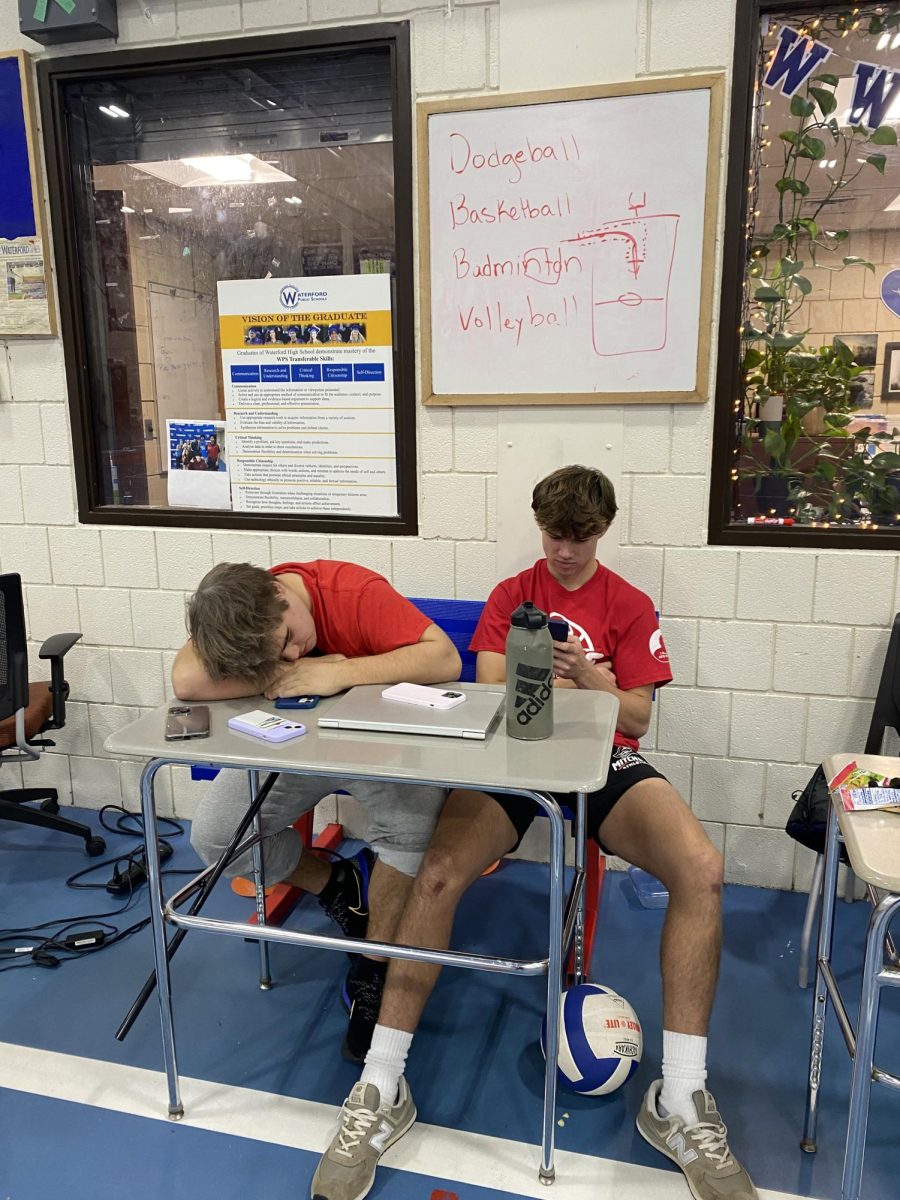Hitting snooze in the morning can be hard to avoid, especially when the first bell rings at 7:25. Alarms are common among teenagers getting up for school, and are viewed as an important tool if you want to get to class on time.
While hitting the snooze button a few times may make you feel like you are getting more sleep, in truth it causes more sleep deprivation long term.
Mrs. Prpich, a teacher at Waterford High School, says, “There are no good effects to hitting snooze, it’s procrastination.”
In one of her classes, AP Psychology, sleep is a topic of discussion. It is said that the quality of sleep that you get in those few extra minutes is actually not as beneficial as you might think. You are better off to wake up at the time you force yourself from bed and stay asleep for those few minutes you would normally set an alarm for.
Along with hitting snooze, a lack of sleep is just as common. Less sleep is seen as something to be proud of if you can function with less than the recommended amount, 7-8 hours, but we are the only species that deprives itself of sleep purposely. If you are constantly waking up late or sleep deprived, you are creating unnecessary stress, mentally and physically. It is better to be proud of getting more sleep, rather than less.
According to the “Child Mind Institute,” “60-70% of American teens live with a borderline to severe sleep debt.”
The effects of sleep deprivation can be extremely damaging. It effects our entire body, from the health of our immune system and our mood to the longevity of our life. “Sleep is the bottom of our health pyramid, effecting everything around it,” says Prpich.
The way students learn and their education can also be greatly affected by a lack of sleep. When students are losing important hours of sleep, they tend to lack focus, creativity, and have an inability to store memories. Students should be making sleep more of a priority.
While the average amount of sleep recorded for Waterford students is 7 hours, taken from a poll of 40 students, there are some exceptions. The least amount of sleep recorded is 4 hours, while the most is 10.
Depending on extracurricular activities, sports, home life, and responsibilities, some students have less time to sleep than others.
Some students argue that school should start later, in order for our students to have a better learning experience. Jeremiah Leguerre, a senior, says, “I think school should start later because I won’t be as focused in school if I’m too tired. If it starts later, students will have more time to get ready and eat breakfast.”
In recent years, the states California and Florida are the first to require later school times. This was in response to extensive research about the effects of sleep deprivation in students at public schools.
One reason for the lack of sleep in teens, as well as children, is the abundance of screen time taking place before bed and during the day. The light emitting off of the screens can cause the suppression of melatonin in the body.
An article “Sleep” stated, “Your body won’t begin producing melatonin the minute you step away from the screen. Your brain takes some time to realize that it’s dark and it’s time for bed. It may take two to three hours before the process of creating melatonin begins.”
Strangely, some students have become accustomed to the light emission of their phones. Senior Amarys Jiminez says, “I stay on my phone up until I go to bed at night, but I get 8 hours every day.”
Depending on individual preferences and needs of students, their education and well-being can fluctuate. Finding the right amount of screen time a day and hours of sleep a night is important for a successful school life.



